 W
WField Marshal Sir Edward Blakeney was a British Army officer. After serving as a junior officer with the expedition to Dutch Guiana and being taken prisoner by privateers three times suffering great hardship, he took part in the Anglo-Russian invasion of Holland in 1799. He also joined the expedition to Denmark led by Lord Cathcart in 1807. He went on to command the 2nd Battalion of the 7th Regiment of Foot and then both battalions of that regiment at many of the battles of the Peninsular War. After joining the Duke of Wellington as he marched into Paris in 1815, Blakeney fought in the War of 1812. He then commanded a brigade in the army sent on a mission to Portugal to support the constitutional government against the absolutist forces of Dom Miguel in 1826. His last major appointment was as Commander-in-Chief, Ireland, a post he held for nearly twenty years.
 W
WSomerset John Gough-Calthorpe, 7th Baron Calthorpe,, was a British soldier and politician.
 W
WLieutenant-General James Thomas Brudenell, 7th Earl of Cardigan, was an officer in the British Army who commanded the Light Brigade during the Crimean War. He led the Charge of the Light Brigade at the Battle of Balaclava.
 W
WColonel John Worthy Chaplin, was a British Army officer and an English recipient of the Victoria Cross, the highest award for gallantry in the face of the enemy that can be awarded to British and Commonwealth forces.
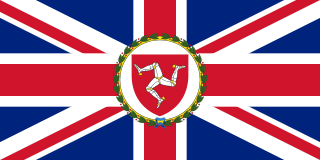 W
WSir Timothy Lewis Achilles Daunt is a retired diplomat and former Lieutenant Governor of the Isle of Man.
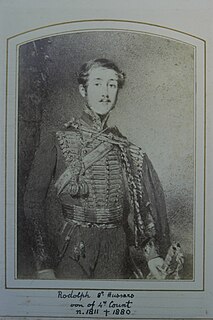 W
WGeneral Rodolph John Leslie Hibernicus De Salis,, CB, OBE (1861), Légion d'honneur, and Order of Medjidie; of Dawley/Harlington, Middlesex; Dunleer, co. Louth; and Brackagh, Co. Armagh; Colonel of the 8th Hussars.
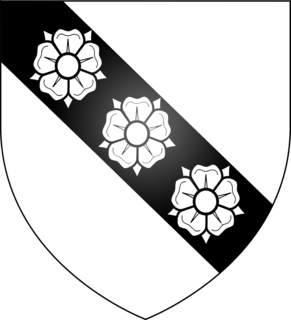 W
WLucius Edward William Plantagenet Cary, 15th Viscount of Falkland, styled Master of Falkland from 1961 to 1984, is a British nobleman and politician.
 W
WLieutenant-General Sir Charles Craufurd Fraser was a British recipient of the Victoria Cross, the highest and most prestigious award for gallantry in the face of the enemy that can be awarded to British and Commonwealth forces. He was also a Conservative politician.
 W
WField Marshal John Denton Pinkstone French, 1st Earl of Ypres,, known as Sir John French from 1901 to 1916, and as The Viscount French between 1916 and 1922, was a senior British Army officer. Born in Kent to an Anglo-Irish family, he saw brief service as a midshipman in the Royal Navy, before becoming a cavalry officer. He achieved rapid promotion and distinguished himself on the Gordon Relief Expedition. French had a considerable reputation as a womaniser throughout his life, and his career nearly ended when he was cited in the divorce of a brother officer whilst in India in the early 1890s.
 W
WMajor-General Sir Hugh Robert Rollo Gillespie was an officer in the British Army.
 W
WMajor-General Walter Tuckfield Goldsworthy was a British Army officer and a Conservative Party politician.
 W
WCharles Grey, 1st Earl Grey, KB, PC served as a British general in the 18th century. A distinguished soldier in a generation of exceptionally capable military and naval personnel, he served in the Seven Years' War of 1756-1763, taking part in the defeat of France. He later served in the American War of Independence (1775–1783) and in the early campaigns against France during the French Revolutionary War. Following the Battle of Paoli in Pennsylvania in 1777 he became known as "No-flint Grey" for, reputedly, ordering his men to extract the flints from their muskets during a night approach and to fight with the bayonet only.
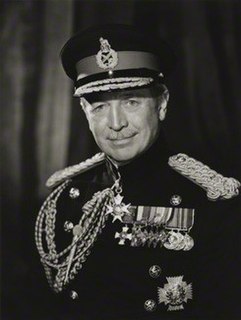 W
WGeneral Sir John Winthrop Hackett, was an Australian-born British soldier, painter, university administrator, author and in later life, a commentator.
 W
WSurgeon General Sir Anthony Dickson Home VC KCB was a Scottish recipient of the Victoria Cross, the highest and most prestigious award for gallantry in the face of the enemy that can be awarded to British and Commonwealth forces.
 W
WMajor Samuel Hill Lawrence VC, born in Cork, was an Irish recipient of the Victoria Cross, the highest and most prestigious award for gallantry in the face of the enemy that can be awarded to British and Commonwealth forces.
 W
WReginald Lindesay-Bethune, 12th Earl of Lindsay, JP, DL, known as Viscount Garnock 1894-1917, was a Scottish nobleman.
 W
WField Marshal George Charles Bingham, 3rd Earl of Lucan,, styled Lord Bingham before 1839, was an Anglo-Irish aristocrat and British Army officer. He was one of three men, along with Captain Nolan and Lord Raglan, responsible for the fateful order during the Battle of Balaclava in October 1854 that led to the Light Brigade commander, The Earl of Cardigan, leading the Charge of the Light Brigade. He was subsequently promoted to field marshal.
 W
WSir Bryan Thomas Mahon, was an Irish born general of the British Army and senator of the short-lived Senate of Southern Ireland.
 W
WMajor-General Sir Evan John Murray-Macgregor of Macgregor, 2nd Baronet, was a Scottish colonial administrator and senior British army officer.
 W
WGeneral Sir Loftus William Otway, CB was an experienced and professional cavalry commander of British forces during the Peninsula War who saw extensive service under Sir John Moore in the Corunna Campaign and Wellington in the remainder of the campaign. He also worked training Portuguese troops and spent time serving in Ireland during the 1798 rebellion and Canada. Otway retired after the Peninsula War and was honoured several times for his war service by both the British and Spanish royal families.
 W
WJohn Hey Puget (1829–1894) was a colonel in the 8th King's Royal Irish Hussars. He was a fellow of the Royal Geographical Society.
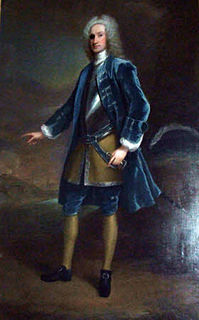 W
WField Marshal Sir Robert Rich, 4th Baronet was a British cavalry officer. As a junior officer he fought at the Battle of Schellenberg and at the Battle of Blenheim during the War of the Spanish Succession. He was then asked the raise a regiment to combat the threat from the Jacobite rising of 1715. He also served with the Pragmatic Army under the Earl of Stair at the Battle of Dettingen during the War of the Austrian Succession. As a Member of Parliament he represented three different constituencies but never attained political office.
 W
WJames St Clair-Erskine, 2nd Earl of Rosslyn,, known as Sir James Erskine, Bt, between 1765 and 1789 and as Sir James St Clair-Erskine, Bt, between 1789 and 1805, was a Scottish soldier, politician, and Acting Grand Master of the Grand Lodge of Scotland, on behalf of King George IV.
 W
WRowland Denys Guy Winn, 4th Baron St Oswald MC DL, was a British soldier and Conservative politician.
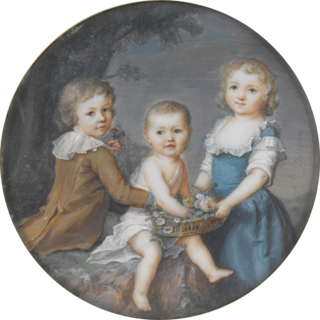 W
WLord Robert Seymour was a British politician who sat in the Irish House of Commons from 1771 to 1776 and in the British House of Commons from 1771 to 1807. He was known as Hon. Robert Seymour-Conway until 1793, when his father was created a marquess; he then became Lord Robert Seymour-Conway, but dropped the surname of Conway after his father's death in 1794.
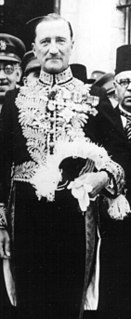 W
WMajor-General Sir Edward Louis Spears, 1st Baronet, was a British Army officer and Member of Parliament noted for his role as a liaison officer between British and French forces in two world wars. Spears was a retired Brigadier General of the British Army, and served as a Member of the British House of Commons. From 1917 to 1920 he was head of the British Military Mission in Paris.
 W
WLord Alan Spencer-Churchill DL was an officer in the British Army, Deputy Lieutenant of Oxfordshire, a lieutenant in the Oxfordshire Yeomanry and a businessman. He was a great uncle of Sir Winston Churchill.
 W
WGeneral Sir John Ormsby Vandeleur was a British Army officer who fought in the French Revolutionary and Napoleonic wars.
 W
WJohn Paulet, 14th Marquess of Winchester, styled Earl of Wiltshire until 1843, was a British peer and soldier.